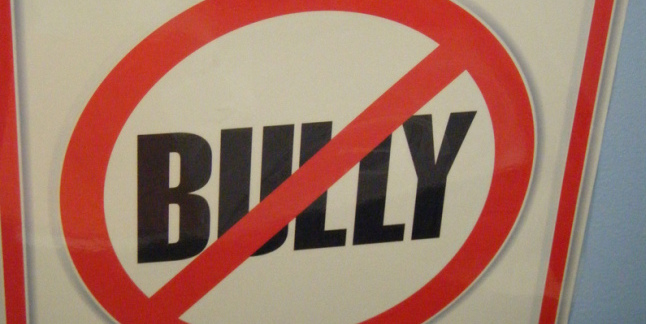 Bullying includes any type of verbal, physical or psychological abuse, and anxious children are often its target. Our in-depth series on bullying covers a wide scope of information on anxious children and bullying, but the effects of bullying don’t stop there. They can linger far into adulthood. By the time they hit age 24, bullies are four times more likely to have been convicted of a crime than non-bullies. Victims and bully-victims can suffer from even more severe issues.
Bullying includes any type of verbal, physical or psychological abuse, and anxious children are often its target. Our in-depth series on bullying covers a wide scope of information on anxious children and bullying, but the effects of bullying don’t stop there. They can linger far into adulthood. By the time they hit age 24, bullies are four times more likely to have been convicted of a crime than non-bullies. Victims and bully-victims can suffer from even more severe issues.
What Childhood Bullying Does to Adults
A study out of King’s College London looked at the effects of bullying on more than 7,770 children, following their progress until they hit age 50. Researchers compared the 50-year-olds who had been bullied as children to adults who had not been bullied. They found those who had been bullied were less likely to be in a relationship and more likely to:
- Suffer from poorer physical health
- Have poorer psychological health
- Experience worse cognitive functioning
- Be unemployed
- Earn less money
- Have lower educational levels
- Lack solid social support
- Report a lower quality of life and a lower level of life satisfaction
‘Toxic Stress’
Another study, this one out of Duke University Medical Center, specifically examined the long-term health effects of bullying. One theory says victims of bullies are subjected to “toxic stress,” which impacts their physiological responses.
Toxic stress is believed to affect children’s physiological responses, potentially impacting the inflammatory response that typically kicks in when the body is defending itself against injury, infection or an ongoing health problem. Inflammatory response levels can be assessed by measuring C-reactive protein (CRP), with high levels present during an inflammatory response.
The Duke researchers measured CRP levels of 1,420 study participants made up of bullies, bully-victims and victims. It looked at their CRP levels as children and as they entered adulthood and found:
- Children repeatedly involved in bullying, whether as bullies, bully-victims or victims had higher levels of CRP than children not involved in bullying.
- Adults who had been victims or bully-victims as children had higher levels of CRP than adults who had not experienced bullying.
- Adults who had bullied others as children had the lowest levels of CRP, even lower than adults who had not been involved in bullying.
High levels of CRP over an extended period can eventually decrease a person’s ability to handle new challenges and increase their risk of physical illnesses, study lead author William Copeland told Medical News Today. Copeland also noted victims of bullying have a higher risk of developing any number of anxiety disorders, while bully-victims were more likely to:
- Have a serious illness
- Smoke regularly
- Develop a psychiatric disorder
- Have a higher risk of depression and suicide
Bullying is a serious problem with long-term consequences, especially when it’s targeted at anxious children. Copeland says two essential moves are stopping the bullying behavior and giving your anxious child strong and continuous support.
SOURCES:
Photo Credit: MrSchuReads via Compfight cc





